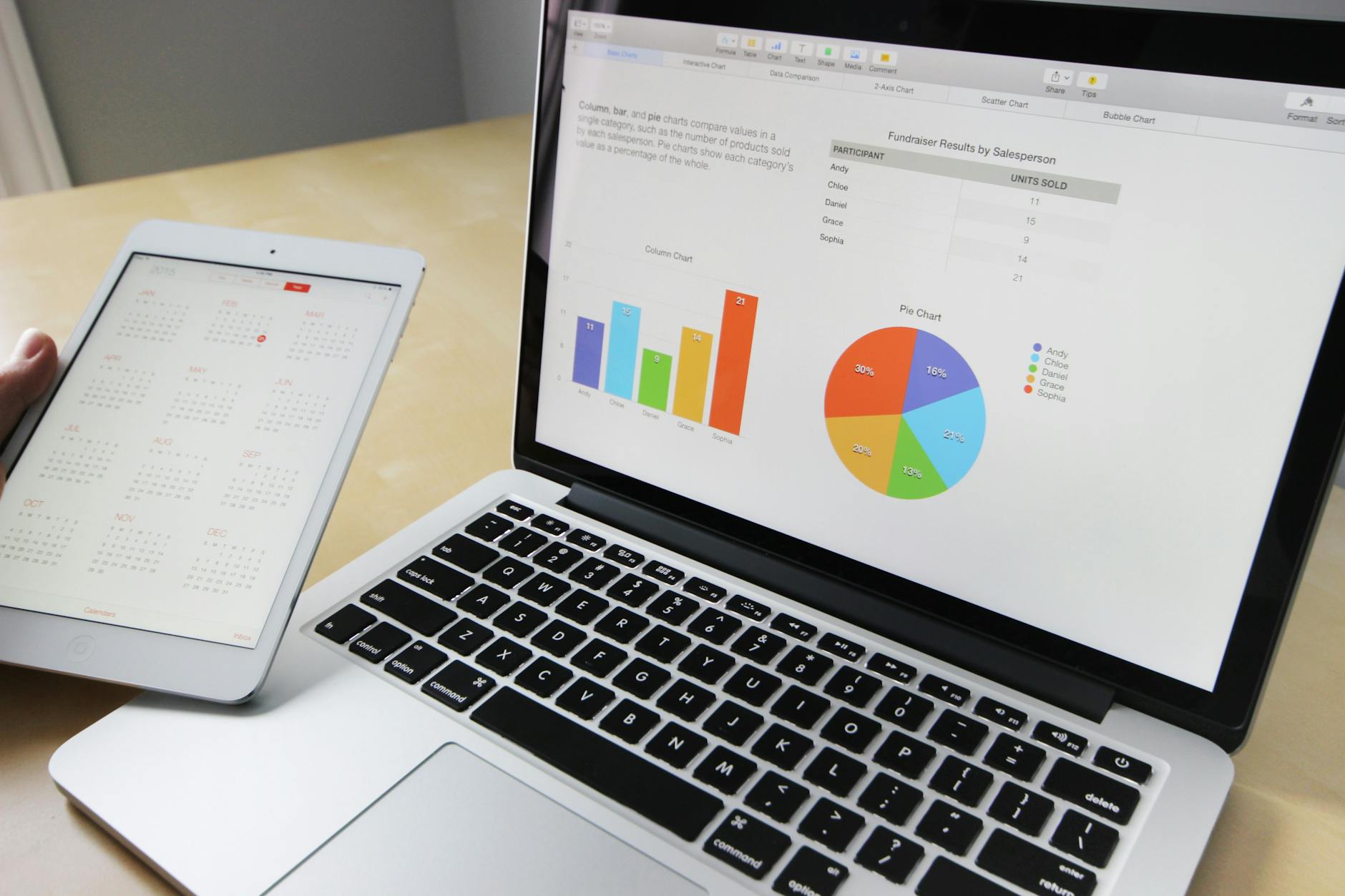
Is your digital marketing job on the chopping block?
As artificial intelligence (AI) continues to advance at breakneck speed, many marketers are left wondering: Will AI replace digital marketing altogether? It’s a question that’s sending shockwaves through the industry, leaving professionals torn between excitement for innovation and fear for their careers.
But before you start updating your resume, let’s take a closer look at the reality of AI in digital marketing. While it’s true that AI is revolutionizing the way we approach marketing strategies, it’s not quite the job-stealing monster some fear it to be. In fact, AI might just be the ultimate sidekick marketers never knew they needed. In this post, we’ll explore the current state of digital marketing, AI’s growing role, and why the future might be brighter than you think for human marketers willing to adapt and collaborate with their AI counterparts.

The Current State of Digital Marketing
Digital marketing has become an essential component of modern business strategies, revolutionizing how companies connect with their target audiences. Let’s explore its key components, importance, and the role of human creativity in this ever-evolving field.
Key components of digital marketing
Digital marketing encompasses a wide range of strategies and tactics:
-
- Search Engine Optimization (SEO)
-
- Content Marketing
-
- Social Media Marketing
-
- Email Marketing
-
- Pay-Per-Click Advertising (PPC)
-
- Affiliate Marketing
-
- Influencer Marketing
Each of these components plays a crucial role in creating a comprehensive digital marketing strategy.
Importance in today’s business landscape
The significance of digital marketing in today’s business world cannot be overstated:
| Aspect | Impact |
|---|---|
| Reach | Global audience accessibility |
| Cost-effectiveness | Lower costs compared to traditional marketing |
| Measurability | Easy tracking and analysis of campaigns |
| Personalization | Tailored messaging for specific audience segments |
| Real-time engagement | Immediate interaction with customers |
These factors make digital marketing an indispensable tool for businesses of all sizes.
Human creativity and strategy in digital marketing
While AI is making significant strides in the field, human creativity and strategic thinking remain crucial. Marketers bring unique insights, emotional intelligence, and innovative ideas that AI cannot replicate. They craft compelling narratives, develop brand voices, and create authentic connections with audiences. Human expertise is essential in interpreting data, understanding cultural nuances, and making complex decisions that require empathy and intuition.
As we delve deeper into AI’s role in marketing, it’s important to recognize the irreplaceable value of human input in digital marketing strategies.

AI’s Growing Role in Marketing
As digital marketing evolves, AI is playing an increasingly significant role in shaping strategies and enhancing efficiency. Let’s explore how AI is transforming the marketing landscape.
AI-powered Tools and Technologies
AI-driven marketing tools are revolutionizing the industry:
-
- Chatbots for customer service
-
- Predictive analytics for forecasting trends
-
- Natural Language Processing for content creation
-
- Image recognition for visual marketing
Automation of Repetitive Tasks
AI excels at automating time-consuming tasks, freeing marketers to focus on strategy:
| Task | AI Solution |
|---|---|
| Email marketing | Automated email sequences |
| Social media posting | Scheduled content distribution |
| Ad bidding | Real-time bid adjustments |
| Customer segmentation | Automated list management |
Data Analysis and Insights
AI’s ability to process vast amounts of data provides marketers with actionable insights:
-
- Customer behavior patterns
-
- Campaign performance metrics
-
- Market trend predictions
-
- Competitor analysis
Personalization at Scale
AI enables marketers to deliver personalized experiences to large audiences:
-
- Dynamic content generation
-
- Product recommendations
-
- Tailored email campaigns
-
- Customized user interfaces
While AI is transforming digital marketing, it’s important to recognize that human creativity and strategic thinking remain crucial. Next, we’ll examine the areas where AI truly excels in digital marketing.

Areas Where AI Excels in Digital Marketing
Now that we’ve explored AI’s growing role in marketing, let’s dive into the specific areas where AI truly shines in the digital marketing landscape.
A. Predictive Analytics
AI-powered predictive analytics revolutionizes decision-making in digital marketing. By analyzing vast amounts of data, AI can:
-
- Forecast customer behavior
-
- Identify trends before they become mainstream
-
- Optimize marketing strategies in real-time
| Benefit | Impact |
|---|---|
| Accurate forecasting | Improved ROI |
| Trend identification | Competitive advantage |
| Real-time optimization | Enhanced campaign performance |
B. Chatbots and Customer Service
AI-driven chatbots have transformed customer service, offering:
-
- 24/7 availability
-
- Instant responses to common queries
-
- Personalized interactions based on user data
C. Content Generation
While AI won’t replace human creativity entirely, it excels in:
-
- Generating data-driven content
-
- Optimizing headlines and meta descriptions
-
- Creating personalized content at scale
D. Ad Targeting and Optimization
AI significantly enhances ad performance through:
-
- Precise audience segmentation
-
- Dynamic ad creation and testing
-
- Real-time bid adjustments in programmatic advertising
E. Email Marketing Automation
AI takes email marketing to new heights by:
-
- Personalizing email content and send times
-
- Predicting the likelihood of engagement
-
- Automating A/B testing for continuous improvement
As we move forward, we’ll explore the limitations of AI in digital marketing, highlighting why human expertise remains crucial.
Limitations of AI in Digital Marketing
While AI has made significant strides in digital marketing, it’s not without its limitations. Understanding these constraints is crucial for marketers to effectively leverage AI while maintaining the human touch.
A. Lack of emotional intelligence
AI systems, despite their advanced algorithms, struggle with emotional intelligence. This limitation becomes apparent in:
-
- Customer interactions
-
- Content creation
-
- Brand voice management
| Aspect | Human Marketer | AI System |
|---|---|---|
| Empathy | High | Limited |
| Emotional Nuance | Natural | Artificial |
| Contextual Understanding | Intuitive | Programmed |
B. Difficulty in understanding context
AI often falls short when it comes to grasping nuanced contexts, which can lead to:
-
- Misinterpretation of consumer intent
-
- Inappropriate responses in social media management
-
- Ineffective personalization in complex scenarios
C. Ethical concerns and data privacy
The use of AI in digital marketing raises significant ethical and privacy concerns:
-
- Data collection and usage practices
-
- Potential for bias in AI algorithms
-
- Transparency in AI-driven decision-making
While AI continues to evolve, these limitations highlight the ongoing need for human oversight and creativity in digital marketing strategies. As we move forward, it’s crucial to consider how humans and AI can best complement each other’s strengths.

The Future of Digital Marketing: Human-AI Collaboration
As we’ve explored the impact of AI on digital marketing, it’s clear that the future lies in a symbiotic relationship between humans and machines. This collaboration will revolutionize the industry, creating a more efficient and effective marketing landscape.
Augmenting human capabilities
AI technology serves as a powerful tool to enhance marketers’ abilities. By automating repetitive tasks and providing data-driven insights, AI empowers human marketers to make more informed decisions and execute strategies with greater precision.
Freeing marketers for strategic tasks
With AI handling routine operations, marketers can focus on high-level strategic planning and creative problem-solving. This shift allows for more innovative campaigns and better allocation of human resources.
Enhancing creativity with AI-generated insights
AI’s ability to analyze vast amounts of data and identify patterns can spark new creative ideas. Marketers can leverage these insights to develop unique, data-backed content and strategies that resonate with their target audience.
Balancing automation and human touch
The key to successful human-AI collaboration lies in finding the right balance. While AI excels in data processing and automation, human marketers bring emotional intelligence and nuanced understanding to the table.
| AI Strengths | Human Strengths |
|---|---|
| Data analysis | Emotional intelligence |
| Automation | Creative thinking |
| Pattern recognition | Strategic planning |
| Personalization at scale | Relationship building |
To thrive in this new era of digital marketing, professionals should:
-
- Embrace AI tools and learn to work alongside them
-
- Develop skills that complement AI capabilities
-
- Focus on areas where human judgment is crucial
-
- Continuously adapt to evolving technologies
By fostering a collaborative approach between humans and AI, the future of digital marketing promises to be more innovative, efficient, and impactful than ever before.

While AI is revolutionizing digital marketing, it’s unlikely to entirely replace human marketers. AI excels in data analysis, personalization, and automation, enhancing efficiency and effectiveness in areas like content creation, ad targeting, and customer interactions. However, human creativity, strategic thinking, and emotional intelligence remain irreplaceable in crafting compelling narratives and understanding complex consumer behaviors.
The future of digital marketing lies in a symbiotic relationship between humans and AI. Marketers who embrace AI as a powerful tool while honing their uniquely human skills will thrive in this evolving landscape. By leveraging AI’s strengths and combining them with human insights, digital marketing will continue to evolve, becoming more sophisticated, personalized, and impactful than ever before.


